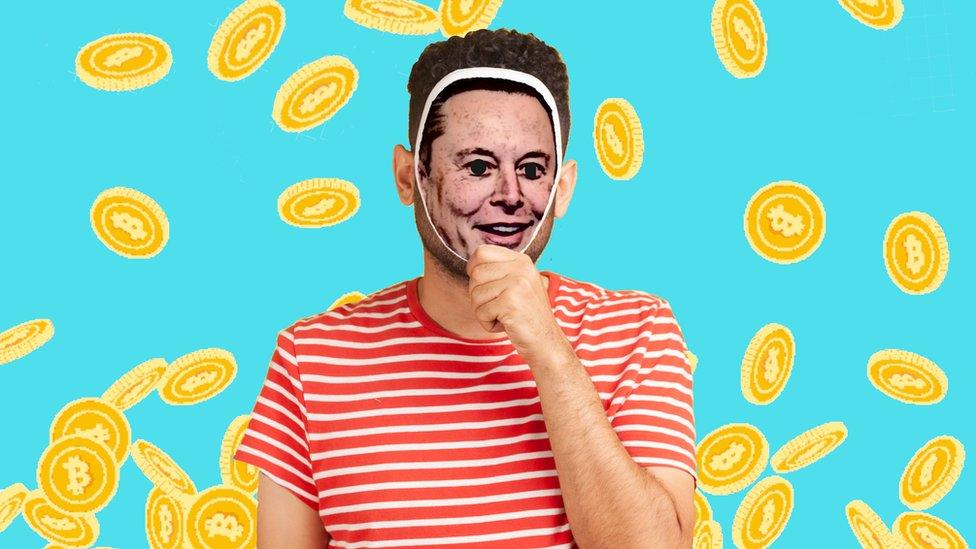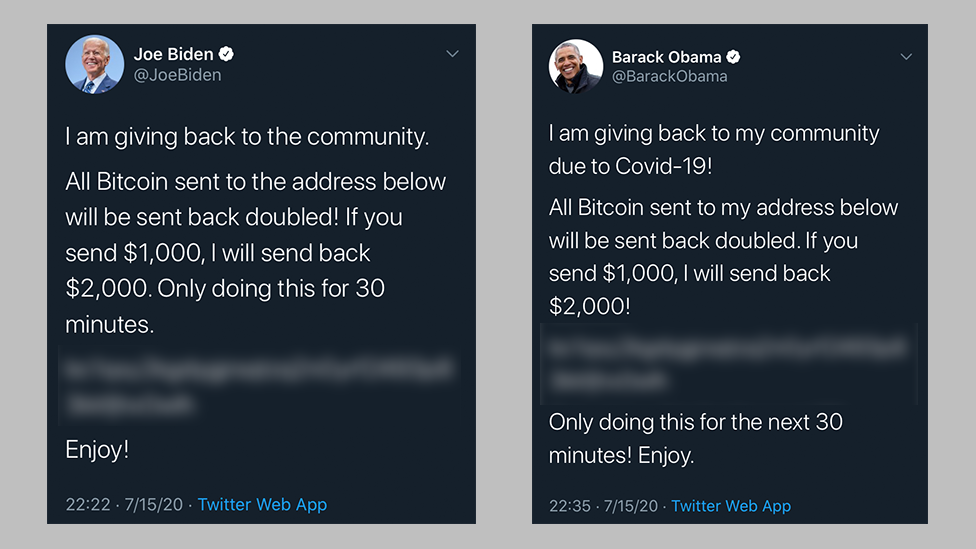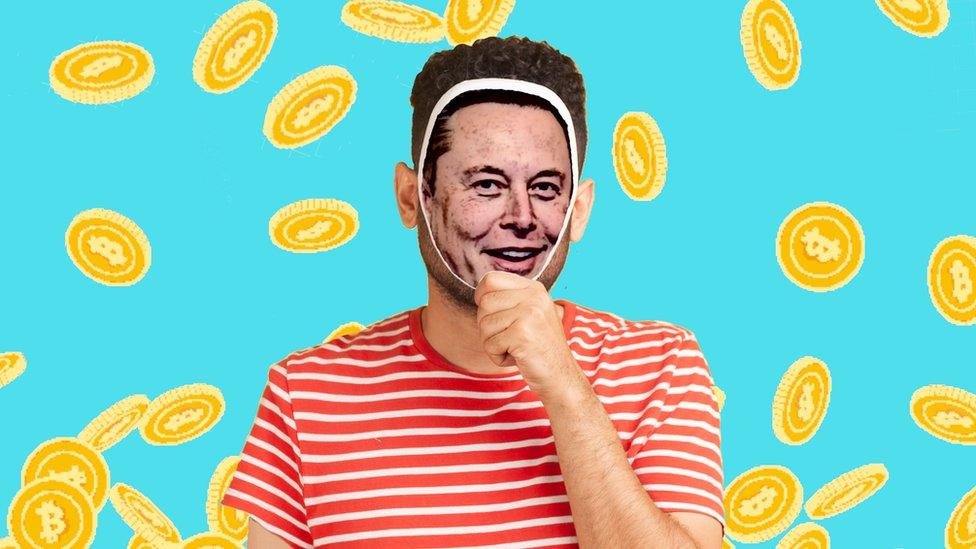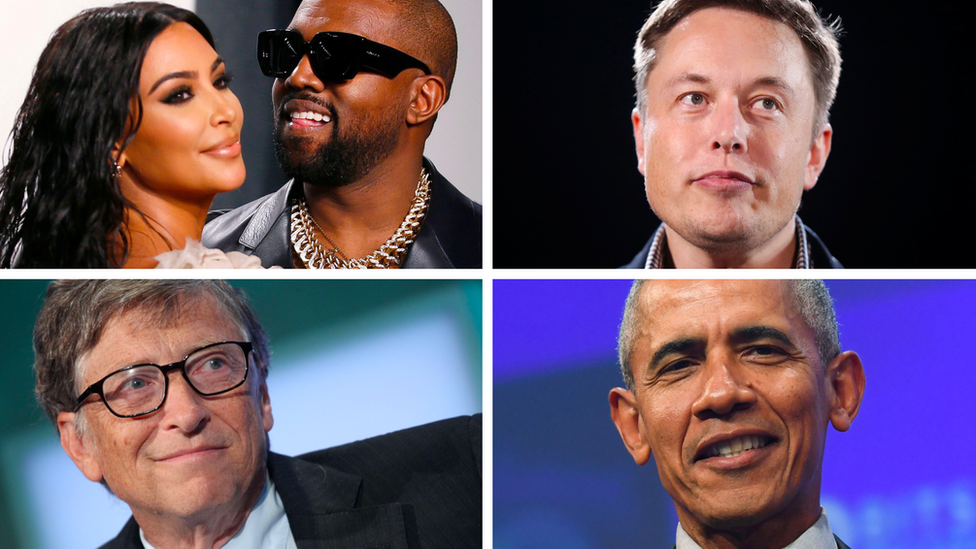Elon Musk impersonators earn millions from crypto-scams
- Published

Crypto-currency scammers pretending to be Tesla boss Elon Musk have made more than $2m (£1.4m) in just six months, US consumer-protection officials say.
The Federal Trade Commission, external received 7,000 complaints from people who had lost a total of more than $80m (£56.6m) in crypto scams since October 2020.
The FTC says losses to fraudsters who claim to be Musk or other famous people are up almost 1,000%, external on 2019/20.
Such scams often begin as investment tips on online message boards.
These "tips" lure people onto fake investment websites.
The scammers often impersonate well-known personalities on Twitter by copying their profile pictures and choosing usernames very similar to those on the genuine accounts.
They then post replies to popular tweets made by the genuine celebrity to give their messages prominence on Twitter.
The FTC said people pretending to be Mr Musk alone made more than $2m in the six months from October.
Creating fake profiles contravenes Twitter's policy against deceptive accounts, external, but according to tech news website The Verge, external, "Twitter's moderators have struggled to rein in the activity, and it remains prevalent on the platform."
Sometimes the scammers opt for hacking profiles instead of impersonating them.
Last July, Mr Musk, Joe Biden, Barack Obama and Kanye West were among prominent figures targeted by hackers on Twitter in an apparent Bitcoin scam.

The Twitter accounts of presidents past and present were hacked and used to solicit crypto-currency from followers
It is often these "giveaway scams" that are targeting the followers of Mr Musk and other prominent figures.
The FTC said criminals also make money from online romance scams and by impersonating government authorities.
Consumers aged between 20 and 49 were more than five times more likely to be conned than older age groups, according to the research.
To help people avoid crypto-currency scams, the FTC has produced a set of guidelines, external based on common methods used by scammers:
guaranteed returns are always fake
so are promises of free money
scammers often make big claims without details or explanations
celebrity endorsements or testimonials are easily faked
be extremely wary of anyone asking you to pay by wire transfer or gift card, which are virtually impossible to recover
Related topics
- Published13 May 2021

- Published16 March 2021

- Published16 July 2020

- Published6 March 2018
